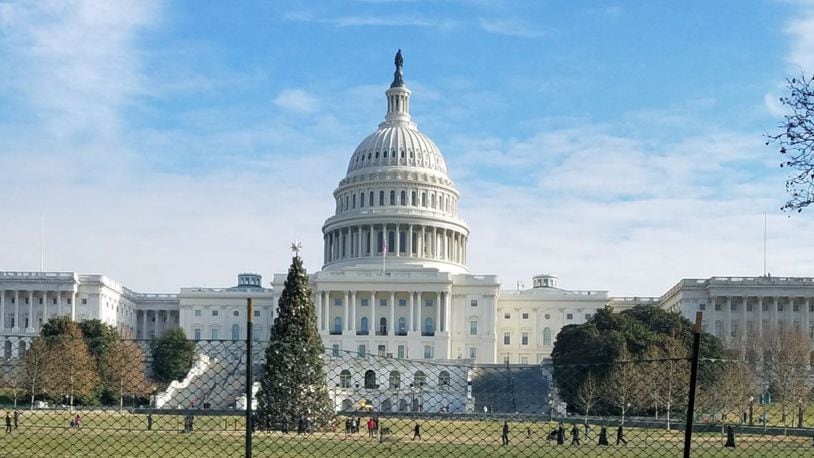"It's the largest - I always say, the most massive - but it's the largest tax cut in the history of our country," the President added, as he publicly thanked GOP leaders in the Congress.
Some thoughts on what the GOP achieved, and what they did not.
1. Bottom line - this is a big victory for the GOP. After a somewhat tumultuous 2017, Republicans badly needed a win on taxes in the Congress. You could almost sense the relief as the President rallied with GOP lawmakers on Wednesday, celebrating their achievement. And many Republicans in the Congress truly believe that once bigger paychecks start being delivered to the voters next year, then that will help turn their fortunes around. You could also see Republicans pushing back against attacks by Democrats, basically asking one question - what's wrong with a tax cut?
2. When will it be signed? When does it take effect? While House members could have brought the bill with them when they trekked to the White House to celebrate with President Trump on Wednesday, officials made clear the President wasn't yet ready to sign the plan into law. That could happen while he is down at Mar-a-Lago, his Florida retreat, for the Christmas break. Senior Administration officials told reporters that the IRS has already been working with the Treasury Department to figure out new withholding rules, on how much money should be kept back from paychecks. As of now, it doesn't look like those changes will happen until February. How it's received will certainly influence how the GOP can do in 2018.
3. Remember, it's not all about tax cuts. While the net impact of the plan is just under $1.5 trillion in tax cuts, there's actually much more than that in the measure. Senior Trump Administration officials told reporters on Wednesday that the final number is $5.5 trillion in tax reductions - about two-thirds of that for individuals and one-third for businesses. But, the bill also has $4.1 trillion in tax increases, though the White House refers to this additional revenue as "reforms" to end deductions and close loopholes. That works out to a net of $1.4-$1.5 trillion over ten years. In a sense, this bill could qualify as one of the largest tax cuts in American history, and maybe the largest tax increases as well. But overall, the tax cuts are the focus, and here's how they are distributed among income groups:
4. Coming up short on tax simplification. At every hearing on the tax code in Congress, you always hear lawmakers on both sides of the aisle speak wistfully about getting rid of loopholes and special tax breaks. The big mantra for the GOP in 2017 was filing taxes on a simple postcard. But the effort to get rid of most personal deductions didn't happen. Republicans will get part way there because of the move to almost double the standard deduction, which should reduce the number of people who itemize their deductions. But with seven different tax brackets, this is far from a flat tax, or the four brackets in the first GOP plan. In fact, the tax code will most likely get bigger after this bill is signed into law.
5. Don't even talk to me about the business side. The big news for corporate taxpayers was the big tax cut from 35 percent to 21 percent, and the end of the corporate Alternative Minimum Tax (that survived on the individual side). But there wasn't really much in the way of simplification after that. When you go through the legislative language and the complicated explanations of the tax changes, you quickly realize that corporate accountants and tax lawyers are still going to be doing a robust business in the future, such as this explanation of a Senate amendment that was adopted dealing with qualified business asset investments, as involved in "current year inclusion of foreign high return amounts or global intangible low-taxed income by United States shareholders."
About the Author
